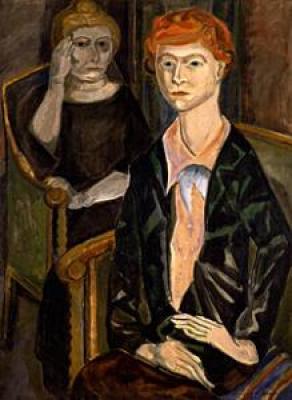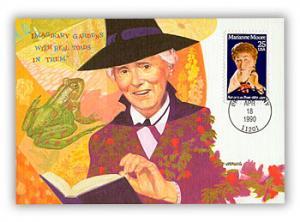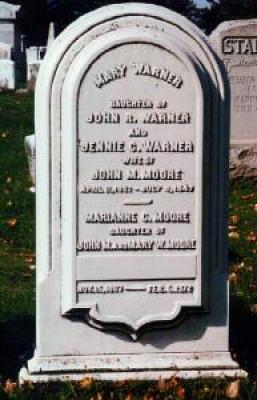Born in Kirkwood, Missouri, and raised in Carlisle, Pennsylvania, Moore was educated at Bryn Mawr College and Carlisle Commercial College. She shared a house with her mother all her life, much of it working on a series of jobs in the New York area, but always focusing on writing. Notably, her use of quotation in her poems is as elaborate as that of T.S. Eliot, but to quite different purposes. If Eliot aimed for magisterial allusiveness, Moore aimed for something more complex and subversive—to model the cultural constitution of knowledge and understanding. Her poems braided of multiple sources are, at their most ambitious, social and philosophical investigations of great subtlety. "Marriage" and "An Octopus" are the most important poems of this impulse, so we include them both. She also had continuing political and historical interests, as two poems here about Ireland—"Sojourn in the Whale" and "Spenser's Ireland"—make clear.
On one level, Moore's "Marriage" is a strikingly even-handed demolition of the illusion that either party to a marriage can so divest himself or herself of self-absorption and self-interest to make a union possible. "He loves himself so much," she writes, "he can permit himself / no rival in that love." But the poem is much more than an analysis of the pitfalls in gender relations. It actually moves centripetally and centrifugally at the same time, treating marriage not only as a site on which individuals and the culture as a whole act out their contradictory investments in independence and community but also as a figural resource that informs all compromised institutions in the culture. Thus the poem is at once about the marriage two people make and about the marriage the states made to form one country—"Liberty and union / now and forever." Both require "public promises / of one's intention / to fulfill a private obligation" and both "can never be more / than an interesting impossibility." Marriage is an institution constructed by contractualized idealization and a model for comparably problematic institutions of other sorts. Marriage in the poem is effectively thus both victim and purveyor of illusions within the culture.




